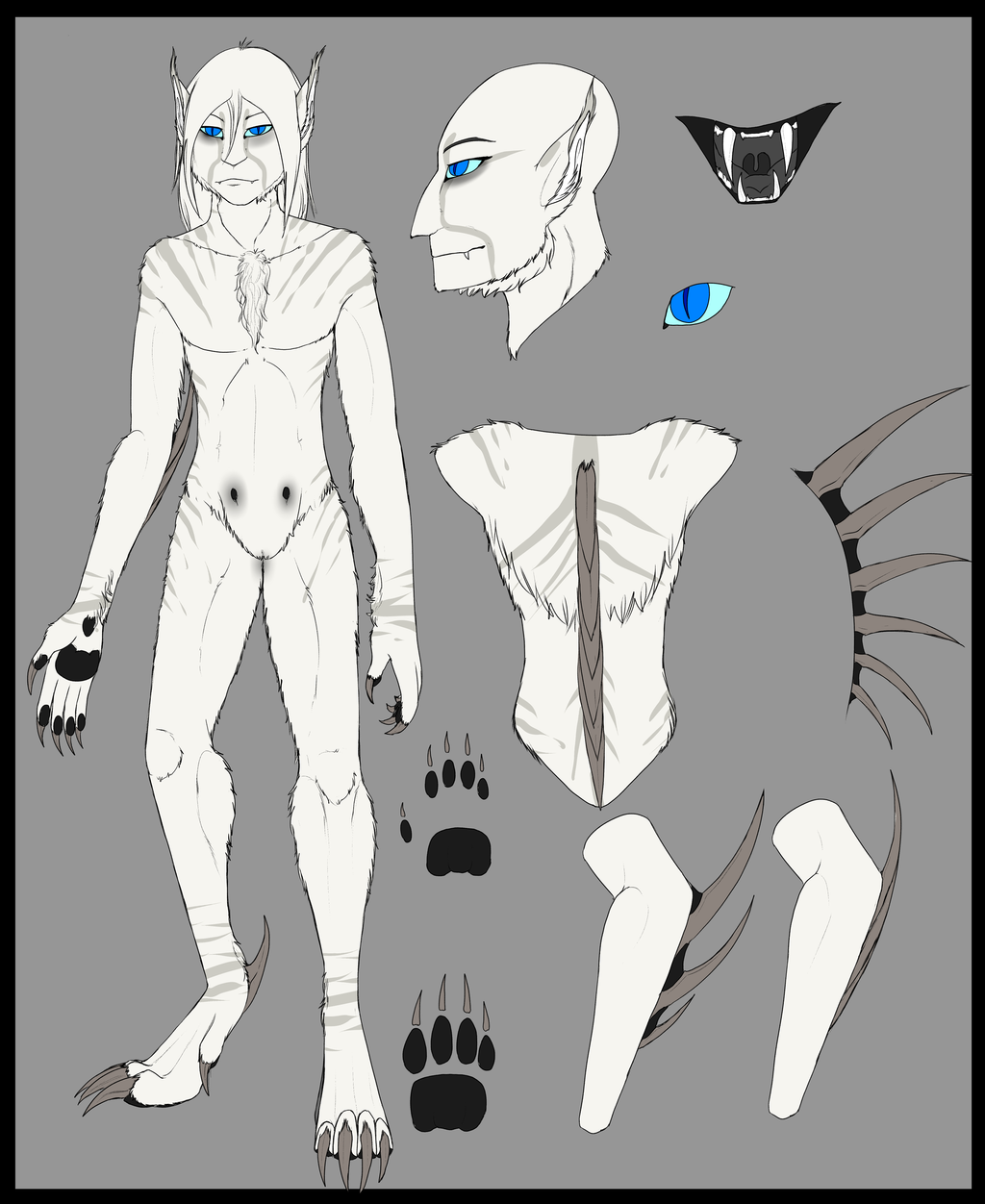Subtypes
Lippizan (Kivuuli Subtype)
Named after a breed of horse, ‘Lippizan’ Kivuuli are usually white or desaturated, or pale grey in coloration with grey markings usually taking on a dappled or cloudy look. They usually have dark markings around their eyes. Their hair will also whiten along with the rest of them, but always matches their fur color. Aside from Maltese, Lippizan Kivuuli are the only ones known to have white hair. Blue, green, and yellow are the most common eye colors for this breed. Their build is like a normal Kivuuli, with no distinguishable size or temperament difference and is thought to be due to a color mutation that became common in certain parts of Between.
They earned their name because they age and grow much like a Lippizanner horse. When they hatch, their coloration is normal. They are black, with slightly darker markings, but as they age their fur will gradually lighten until they are all white or pale gray. Elders often lose all markings and are completely white aside from a slight darkening around the eyes and where the fur thins.
Their skin is black instead of colored, so where the fur is thinner the darker skin shows through. This means their pads, membranes, and often tongues and such are black or varying shades of of black or dark grey. At birth, the pads and skin are relative to their eye color like regular Kivuuli but darken to black as the fur lightens to white.
Feathering is very common among Lippizan. It always matches their fur color.
Lippizan Kivuuli are pretty rare, only appearing in a few colonies in remote and untraveled parts of Between. The color mutation that caused this breed is easy to dilute out and will vanish within a generation or two. When mixing with other types of Kivuuli, the color change is often far less pronounced, and by the third generation it’s gone entirely, and it doesn’t carry easy. As such, they usually only show up where Colonies are isolated and don’t interbreed with other colonies. There are, however, several Colonies of this odd white Kivuuli even if the regular black variety is not aware of their existence.
